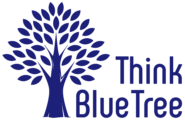In a world constantly buzzing with information, making sense of it all can feel like trying to hear a whisper in a storm. Every day, we are bombarded with news, social media updates, work emails, and a myriad of decisions from what to have for breakfast to more significant life choices.
In the midst of this, how do we decide what truly matters?
One important way can be through Relevance Realization (RR), our mind’s innate ‘compass’ that effortlessly guides us towards what’s essential and filters out the unnecessary noise.
We want to shed light on what exactly RR is, why it holds the key to personal development, and how you can cultivate it to lead a more meaningful life. After all, with our current world in a meaning crisis that affects every one of us in some way, I think it’s a worthy inquiry.
What is Relevance Realization?
Imagine you are in a dark room filled with various objects, and you have a spotlight. Where you choose to shine this light determines what you can see and interact with; the rest remains in the shadows. RR is that mental spotlight. It’s the process our brains use to focus on specific information, helping us to decide what is important in a given moment and what can be set aside.
Whether deciding which friend’s advice to take, or solving a complex problem at work, RR is at play. It’s our brain’s way of managing the overwhelming amount of information we encounter, allowing us to navigate life with intention and clarity.
Here’s another example of it:
Think about a conversation with your partner. They may share a lot of information with you – about their day, their feelings, things that are bothering them. But not all details have the same importance. Your brain needs to decide what to focus on. What are the most important points or feelings they’re trying to express? That’s what’s relevant.
Maybe your partner mentions a small disagreement with a coworker but spends more time talking about a hobby they’re excited about. Your brain picks up on that excitement as being more important, more relevant, in this context. So you ask more about the hobby, showing your interest and making your partner feel appreciated.
Why is it Called “Realization”?
The term ‘realization’ in RR signifies that this isn’t just a passive process. Our brains are actively ‘realizing’ or making real, the information that we need to pay attention to. Making real our information into our awareness and internal experience is at the core of RR. It’s a dynamic, ongoing act that our minds are performing every second of the day, often without us being consciously aware of it.
It’s also the ‘ahah’ moment as we realize the solution to a given problem. Our minds are problem solving masterpieces after all (hence the anxiety we all inherently experience).
Another way I have often referred to RR is ‘flexibly spotting what’s important’.

Why Relevance Realization is Key to Personal Development
We all want to improve, to grow, to make better decisions. At the core of all these aspirations is the ability to determine what is significant and what isn’t. RR is not just another self-improvement tactic; it’s fundamental to how our minds operate. It’s the mental ‘operating system’ that allows us to discern what steps will move us closer to our goals and which are likely to lead us astray.
Building Adaptability and Resilience
In a rapidly changing world, the ability to adapt is more vital than ever. RR is our internal ‘GPS’ that recalculates our route when an unexpected roadblock appears. It allows us to reassess, adapt, and move forward, even when circumstances change drastically.
Enhancing Emotional and Social Intelligence
Imagine being at a bustling party, and amidst all the noise, you can tune into the one conversation that matters to you. That’s RR in action socially—it helps us ‘tune in’ to the emotional states and needs of ourselves and others. It acts as a social ‘radar,’ helping us navigate complex interpersonal landscapes and form deeper, more meaningful connections.
Navigating Information Overload in the Digital Age
Today, our ‘inboxes and notifications’ are not just on our desks or in our phones; they are everywhere. RR is like a spam filter for our lives. It helps us to decide which ‘notifications’ deserve our attention and which are merely distractions pulling us away from what’s genuinely important.
Cultivating & Enhancing Relevance Realization
One key idea behind cultivating and developing RR is that we don’t put all our eggs in one basket. Don’t just use one idea to develop it, as the very idea of RR requires a variety of experiences to engage it. We easily shun the things that are hard to us, but these may be the very things that will help our RR out the most.
That said, here’s a few ideas to get started:
Critical Thinking and Self-Reflection:
Journaling or engaging in thought-provoking conversations can be likened to a ‘tune-up’ for our RR ‘compass.’ It’s a regular check that helps us refine our sense of what matters, encouraging us to challenge our assumptions and continually realign with our true north. How often are we engaging in deeper conversations these days?
Mindfulness and Meditation Practices:
Think of RR like a muscle. Just as we can train our bodies, we can train this mental capacity. Mindfulness and meditation are akin to a ‘gym’ for our RR. They allow us to practice focusing our attention deliberately, to become aware when our ‘spotlight’ has drifted and gently guide it back.
Embracing Novel and Diverse Experiences:
Stepping into new situations—be it travel, a new hobby, or meeting new people—is like giving our RR a ‘workout’ with new equipment. These experiences provide fresh data and unique challenges that encourage our RR to adapt and grow.
Emotional Regulation and Resilience Training:
Managing our emotions, akin to weathering a storm, requires knowing which ‘anchors’ are reliable. Emotional regulation practices, such as mental health coaching, therapy or physical activities like yoga, help us to strengthen our RR’s ability to hold steady and focused amidst emotional turbulence.

Relevance Realization in Relationships
Imagine walking into a room and instantly knowing who is in need of comfort, who is elated, and who would rather be left alone. RR is the sensitivity that allows us to ‘read’ these emotional signals. It’s our interpersonal ‘radio tuner’ that helps us dial into the right frequency to connect with others deeply and authentically.
In romantic relationships it might be spotting what’s important to the other person, or what the relationship needs to grow and thrive. We might not know how to go about it, but RR provides the insight, the ahah moment that will allow us to have awareness of what needs to be done.
And once aware, we can then seek out skills or other relevant information to help sort out the issues or dilemmas we face.
Navigating Difficult Conversations
Think of a heated argument as a wild, rushing river. RR is the raft and the paddle—it doesn’t change the river, but it helps us steer through the rapids and avoid the rocks, guiding us to address conflicts in ways that are constructive rather than destructive.
No one likes difficult conversations. They bring up feelings like anxiety in almost everyone. But knowing, with RR, what’s important and why it needs to be done is a crucial ability. We can then summon courage to enact what we need to do, because we know the full consequences of not doing it.

Relevance Realization in the Modern World
In our digital age, imagine RR as the most sophisticated filter on your email or social media feed. It helps you immediately recognize what’s junk, what’s interesting but not urgent, and what’s a priority that needs your immediate attention. We are often overloaded to the point of our attention spans reducing. Now more than ever, developing RR within us is key to sorting through the bullshit.
Protecting Our Mental Health
In a world where stressors are abundant, RR is like an emotional firewall. It helps us to determine which issues are worth our emotional energy and which are not, acting as a barrier between us and unnecessary stress.
The majority of us, given the chance, try to avoid or eliminate our troublesome emotions and thoughts- with little success. RR could mean realizing that the internal experience of ours needs acknowledgement and to be dealt with, without deceiving ourselves that we are OK. It would mean we seek assistance from various sources to help ourselves, and not let issues spiral to the point of self destruction.

Trusting and Cultivating Your Inner Compass
In summary, RR is not just a concept; it’s a practice, a way of interacting with the world that brings clarity and purpose. It is our built-in guide through the complexities of modern life. Awareness of RR and its importance is the first step and the most important as it can then further guide you in engaging and cultivating it.
We all have this innate ability, but like any other skill, it becomes more potent with attention and practice. When we trust this inner compass and take active steps to cultivate and refine our RR, we end up with a more meaningful and connected life- our own state of Eudaimonia.





